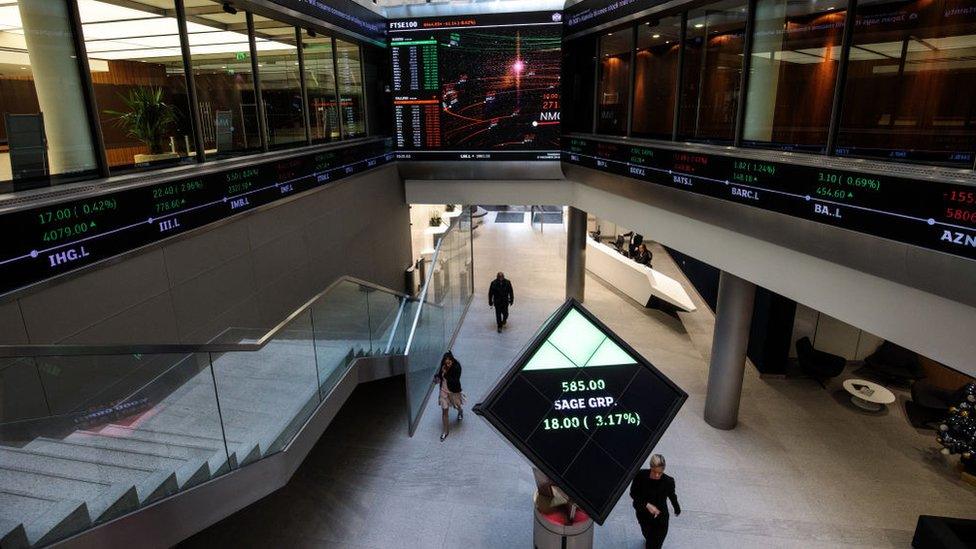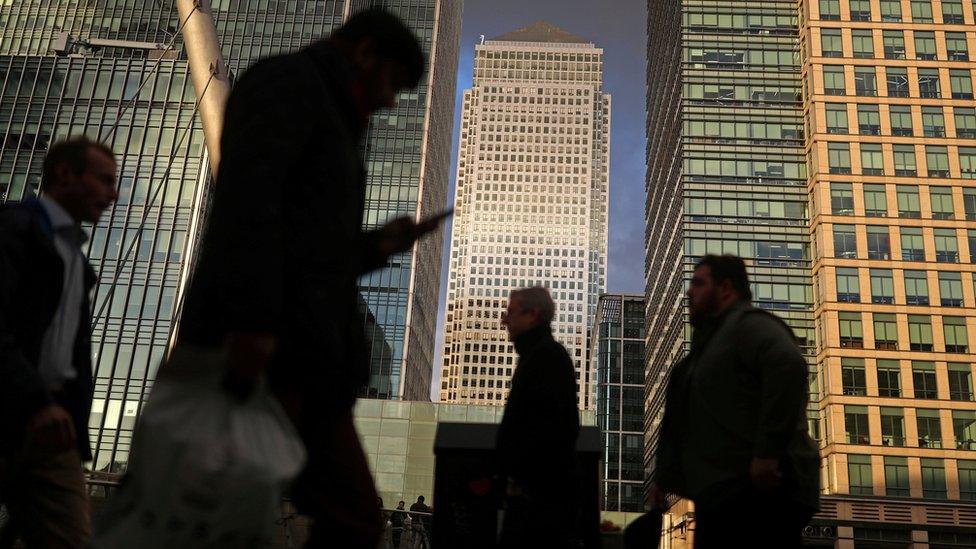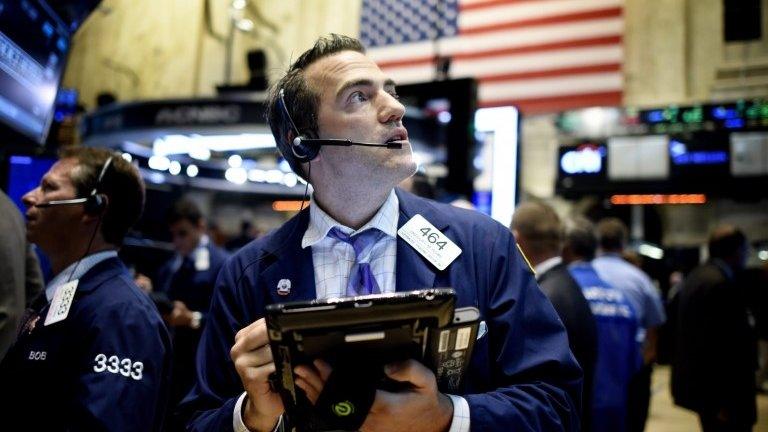Stock markets stable after China trade warning
- Published
- comments

Stock markets around the world have stabilised, after fears of a slowing global economy sparked a big sell-off on Wednesday.
The main US share indexes closed 3% lower overnight, but the benchmark Dow Jones closed higher on Thursday.
This was despite a warning from China that it would take new countermeasures against US trade tariffs.
However, the picture was more mixed in Europe, with London's FTSE 100 closing more than 1% down.
There was panic on European, US and Asian markets on Wednesday, after weak data from Germany and grim signs in bond markets raised fears of a global slowdown.
The yield on two-year and 10-year Treasury bonds inverted for the first time since June 2007 in the UK and the US as investors dived into longer-term investments.
Historically, such bond movements have been a reliable indicator of recessions. For example, they preceded the last big global downturn more than 10 years ago.
Markets saw a further dip early on Thursday after China's Ministry of Finance said a US plan to impose fresh tariffs violated a consensus between US President Donald Trump and his Chinese counterpart, Xi Jinping.
The ministry said China would "have to take necessary countermeasures" against US tariffs.
Trade tensions between the US and China have weighed on stock markets for at least the past year, with investors nervous that the dispute is dragging on both economies.
By the end of the trading session on Thursday in Europe, Germany's Dax index had lost 0.7% and the French Cac 40 was down 0.4%, while the pan-European Stoxx 50 fell 0.2%.
In the US, the Dow Jones closed 0.4% higher and the S&P 500 gained 0.3%, while the Nasdaq lost 0.1%.
Speaking to the BBC's Today programme, Kathleen Brooks from Minerva Analysis said the sell-off may have been compounded by the fact many investors are on holiday.
"People are away, so moves can be exaggerated in August," she said.
- Published14 August 2019

- Published15 August 2019

- Published14 August 2019

- Published9 August 2019
